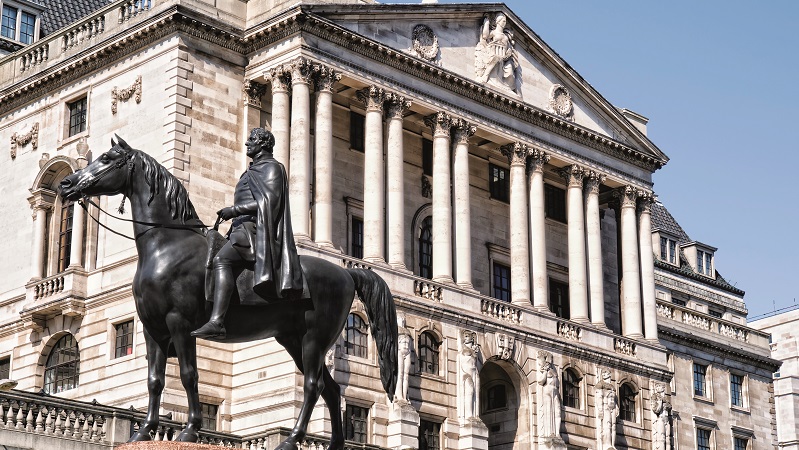The Bank of England has raised rates for the first time since the start of the coronavirus pandemic to combat rising inflation which last month surged to a 10-year high.
The monetary policy committee voted 8-1 to lift rates by 0.15 percentage points to 0.25% from their historic low of 0.1%.
As with the November rate meeting, the committee voted unanimously to maintain the amount of quantitative easing at £895bn. Previously in September, two members of the MPC voted for the central bank to cut its purchases to £860bn.
The decision follows yesterday’s surprise inflation readout, which showed the UK consumer price index surged to 5.1% in November from 4.2% in October, its highest level in a decade. The November print was well ahead of expectations and upset the Bank of England’s own forecast that inflation wouldn’t hit 5% until spring 2022.
“Given high, and rising, inflation, in part a result of the bank’s communication missteps creating a de-facto weaker sterling policy, it clearly felt it could no longer stay on the accelerator pedal despite the risks that are now out there in the economy,” said Quilter Investors portfolio manager Hinesh Patel.
Markets surprised by rate hike amid surging Omicron cases and weak PMI data
However markets had not been anticipating action from the Bank of England, pricing in a 40% chance of a rate hike, given the emergence of the Omicron variant which has created an uncertain outlook on near-term growth.
Earlier today, the flash composite purchasing managers’ index (PMI) readout dropped to a 10-month low of 53.2 in December from 57.6 in November, making a rate rise seem even less likely.
“It was only a fortnight ago that Bank of England hawk Michael Saunders, who was one of just two MPC members to back a hike in November, suggested even he might pause on voting for a rate hike this month in light of the threat of Omicron,” Interactive Investor head of investment Victoria Scholar said.
Off the back of the Bank of England’s announcement, the pound and the FTSE 100 rallied sharply. The banking sector in particular took off, with Barclays and Lloyds both seeing their shares lifted above 4%.
“It is clear that the Bank of England has listened to the IMF this week, which warned the central bank not to act too slowly and to avoid ‘inaction bias’,” Scholar said. “The central bank has also clearly been paying close attention to the latest inflation reading with UK CPI at 10-year highs and wholesale inflation jumping the most since records began.”
See also: Could rising rates finally see the stars align for specialist financial funds?
BoE moving contrary to the Fed
Patel said the Federal Reserve’s actions also created a “conundrum” for the Bank of England. On Wednesday chair Jay Powell announced he would reduce the Fed’s $120bn monthly bond purchases quicker than expected and signalled three rate hikes in 2022.
“If the Bank of England did not match direction of travel over the longer-term, an even weaker sterling would have compounded inflation further to make the cost-of-living crisis even more acute,” he said.
“The trick in the Bank of England’s favour, and clearly what it is banking on, is the ability to raise rates should the Omicron variation be less severe than expected whilst maintaining asset purchases – a move that would be contrary to the Fed’s actions. This would ultimately provide a smoother ride for market volatility and a way to defend the pound.”






